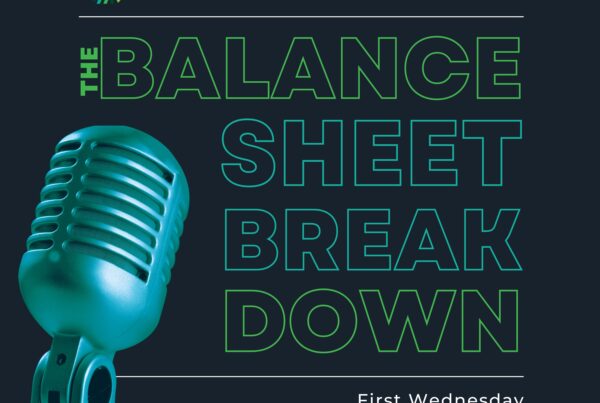It is hard to estimate the number of Americans living abroad but globalization in general and the pandemic, in particular, have created an environment where physical relocation is becoming increasingly easier. Spending a part of one’s life abroad is no longer reserved for multinational companies’ employees, ambassadors, or digital nomads. The regular employees that shifted to a permanently remote status because of the pandemic also have a possibility to explore the world outside the United States borders without disrupting their employment. In addition, they gain the possibility to reduce their tax bill.
The United States tax system is unique – it is one of the few countries that tax its citizens and residents on their worldwide income. It is also commonly known that there are few tax planning strategies available to salaried employees to help lower their taxes. Surprisingly though, this rigid framework of rules has a soft spot – it quite generously allows U.S. citizens and permanent residents living abroad to exclude up to $112,000 of Foreign Earned Income in 2022. This is commonly known as the “Foreign Earned Income Exclusion.”
What is Foreign Income?
Just as the title suggests, only earned income, such as wages, salaries, professional fees, and other compensation received for personal services qualifies for the exclusion. Any passive income such as dividends, interest, pensions, or annuities would be taxed in the US under the regular tax rules.
The word “foreign” refers to the location of the taxpayer where the services are performed, rather than the payor of such income. The wages paid by a U.S. employer would qualify for the exclusion if it was earned while residing in a foreign country. However, for the earnings to qualify for the exclusion,
The individual must satisfy two tests:
- Foreign Tax Home test, and
- Either:
- The Bona Fide Residence test, or
- The Physical Presence test
The Three Tests Defined
To pass the Tax Home Test, an individual claiming the Foreign Earned Income exclusion should have a somewhat stable workplace outside the United States. According to the IRS, a tax home is the place where an individual is permanently or indefinitely engaged to work as an employee or self-employed person. Digital nomads, who do not have a permanent place where they work, should consider the place of their residence as their tax home, or, absent the latter, a place where they work, even if it is not permanent.
But it is not as simple as it looks. Taxpayers need to consider the following: A person fails the Tax Home test if he or she maintains an abode in the United States. The IRS interprets the word “abode” as the location where “family, economic, and personal ties” are maintained and does not provide taxpayers with a definite answer on whether maintaining a home in the United States would constitute having an abode.
The Bona Fide Residence test applies to U.S. citizens who are bona fide residents of a foreign country. It also applies to U.S. residents who are citizens or nationals of a country with which the United States has an income tax treaty and is a bona fide resident of a foreign country. To satisfy the test, a taxpayer has to be a bona fide resident for a full year, however, just living in a country for a year or longer does not automatically make one a bona fide resident. Factors, such as the taxpayer’s intentions of staying in the country, participation in the local community, nature of the employment, assumption of the tax burden in a foreign country, marital status, and residence of the taxpayer’s family, are considered.
The last of the three, the Physical Presence test is met if a taxpayer is physically present in a foreign country for 330 full days during a 12 consecutive month period. It is important to note that the 12-month period does not have to coincide with the calendar or tax year. If a 12-month period includes at least one day of the current tax year, it can be used to satisfy the test. In addition, the 330 qualifying days do not have to be consecutive.
Claiming the exclusion – How and When
The Foreign Earned Income exclusion is claimed by timely filing Form 2555 (Foreign Earned Income) together with the annual individual income tax return Form 1040 (including extensions). Form 2555 can also be filed on an amended tax return.
Additional benefits – the Foreign Housing Exclusion or Deduction
In addition to the foreign earned income exclusion, taxpayers can also claim the Foreign Housing Exclusion or Deduction. The Foreign Housing Exclusion can be claimed by a person who is a wage employee and is paying for housing expenses from what is taxable foreign income to him or her. The Foreign Housing Deduction can only be claimed by a self-employed person.
The Internal Revenue Service has clearly defined rules about what is considered reasonable housing expense, the formula of how to calculate foreign housing amount, and the maximum allowed limits for different locations worldwide, all of which can be found in the Instructions for Form 2555. It is important to note that no foreign tax credit can be claimed on excluded foreign earned income or housing amounts, thus it might be a good idea to run comparative calculations to determine whether tax credits or foreign housing exclusion is more beneficial for the taxpayer.
This article in general was written with W-2 income earners in mind and does not consider the additional layers of complexities for self-employed U.S. taxpayers living abroad. If you have any questions or would like to discuss your situation, please do not hesitate to reach out to your WG advisor.





